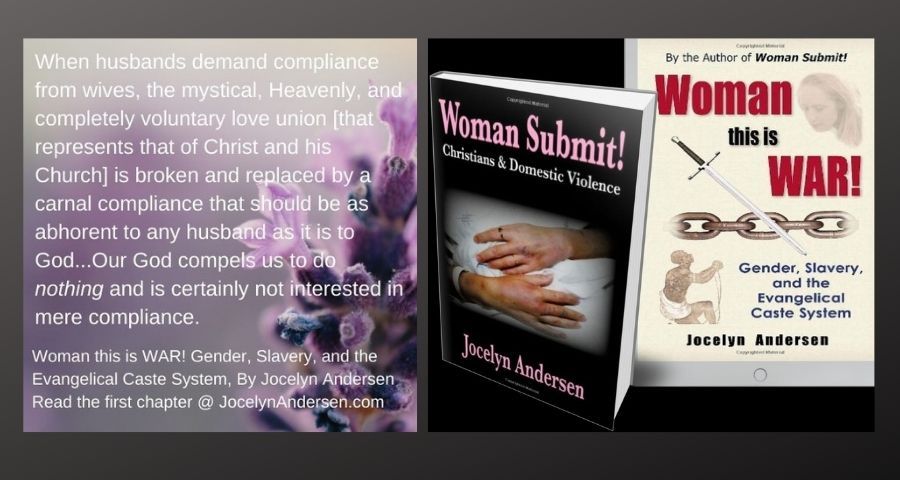For all practical purposes, the two women honored in Philippians 4:3, might well be invisible. Rarely are they mentioned from pulpits. On the other hand, the two women who had a disagreement [in Philippians 4:2] enjoy wider visibility and recognition...
even though they are the same two women.
Philippians 4:2-3 2:
I beseech Euodia and beseech Syntyche [pronounced Suntuka]
that they be of the same mind in the Lord 3: And I entreat you also true
yoke-fellow assist these women who labored with me in the gospel (with Klemes also and with other my fellow laborers
whose names are in the book of life) [1]
Paul honored these women without
disqualifying them from leadership.
Yes, there
was some discord between the two. Yes, it needed to be resolved. But this
was not a "woman problem" that prohibited them, nor all women, from effective
leadership in the Church. Despite this fact, I have personally witnessed pastors accusing women in
leadership of "screwing up everything" (direct quote). One pastor went into detail as to what he meant by that, and his scope of female-induced-devastation
included everything from splintered churches to international ruin. He failed to provide details on exactly how women
managed to accomplish such mass-desolation, only that they did it.
What awesome power women must have!
Oh, we've heard the standard argument against women in leadership, that they are "too emotional." Women are too emotional? What is the male to female ratio of convicted violent offenders, I ask you? Rage induced violence is not emotional?
fortunately, Paul had no such prejudiced double standard when it came to women. He was completely transparent about
more than one emotional disagreement he had been part of--with male leaders. But
neither his "blow-up" with Silas', which resulted in the two going their
separate ways after "no small" disagreement, nor Peter's hypocrisy and
Paul's subsequent public confrontation with him over it [at a leader's conference no less] discredited any of these men in the eyes of the Church.
It is a sorry fact, that women are held to higher standards than men in almost every area of life.
- Her house isn't clean? She's lazy / His house isn't clean? Oh, he's just being a man
- Single mom's child looks disheveled? She's a bad parent / Single dad's child looks sloppy? He's doing the best he can
- A battered mother becomes emotional in custody suit over her child's safety? She's hysterical / A concerned father becomes emotional in custody suit over his child's safety? He's a hero
I have even seen single fathers especially honored at Mother's Day celebrations. What?! Isn't that what Father's Day is for? Has anyone ever seen single mothers singled out at Father's Day events [as being heroic]?
All of the above-mentioned things, are prevalent within contemporary thought and life, but should not be so among Christians, who are commanded to apply the same standards to everyone. Diverse weights are an abomination to the LORD and a false
balance is not good --Proverbs 20:23
Selah....
[1] Paul made certain to
remind the Church at Philippi, about the importance of the work Euodia and Suntuka [phonetic spelling] had
done, and who these women had worked with. Laboring in the Gospel includes
preaching and teaching, and nothing in the Bible commands women to discriminate
against men when it comes to leading men to the Lord and helping them to grow
in the Word (that, in a nutshell, sums up the work of the Gospel). When Paul’s
words are added to those of Jesus, in John 13, where he said, “Do you
understand what I have done to you You call me Teacher and Lord and you say
well for so I am If I then your Lord and Teacher have washed your feet you also
ought to wash one another's feet For I have given you an example that you
should do as I have done to you,” then we understand that all Christians
are commanded to humbly serve and assist one another—regardless of sex. Add to
that, Acts 2:17 and 1 Peter 5:5kjv (TR), and we have more witnesses (not
limited to just these) that the scriptures are not complementarian [do not support male headship doctrine].
We see in these examples that complementarian teaching contradicts scripture in
that: A.) God calls both women and men to preach the Gospel and to serve as leaders
within the churches. B.) Grudem’s teaching, that women were created only to
assist men and not the other way around, is patently false.
Euodia Suntuka were women of some import
in the Church at Philippi. These two leaders must not have seen eye to eye on
something as Paul was begging for unity between them. But despite their
disunity on a certain issue, he still instructed the entire congregation (not
just the male members) to assist the two as they labored in the Gospel.


No comments:
Post a Comment